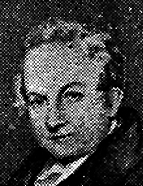

Born in 1787 to an influential and wealthy family in Gateshead, on the outskirts of Newcastle-upon-Tyne, the son of Cuthbert Adamson — a lieutenant in the Royal Navy — John Adamson showed a particular interest in literature from an early age. In 1803, after completing Grammar School, his family sent him to Lisbon, where his older brother, Blythman, a wealthy merchant and a notable member of the British Factory House in the Portuguese capital, resided. Destined to become his business partner, a career in mercantile activity was the future that his parents had envisioned for the author. No specific details are available regarding the activities he engaged in during his time in Portugal. However, we do know that in addition to learning Portuguese, he developed a keen interest in Portuguese literature, acquiring and collecting works by Lusitanian authors, which formed the original core of his library. However, the Napoleonic Wars and the initial French invasion in 1807 compelled him to return home. In contrast to most Englishmen who travelled to Portugal, he never published any accounts of his experiences in the country. Nevertheless, he maintained an unusually positive and unique perspective of the nation that had embraced him. His view was shaped by his extensive knowledge of its literature and history, as well as the thorough research he conducted in these areas.
Upon returning to Great Britain, he chose to pursue a career in law and, after a few years, established himself as a solicitor in Newcastle. During this time, he also held several public and administrative positions of local significance. He served as Under-Sheriff of Newcastle (1811) and also as Secretary of the Newcastle and Carlisle Railway Company. Despite his demanding professional commitments, he managed to secure a prominent position within the city’s intellectual circles. Alongside other notable figures from the Tyneside region, he distinguished himself as a founder and member of several local cultural institutions, including the Literary and Philosophical Society of Newcastle-upon-Tyne (1811) and the Antiquarian Society of Newcastle (1813). Even though he resided in Newcastle, a provincial and industrial city away from the centres of British cultural and academic life, he maintained personal contact and correspondence throughout his life with most English intellectuals and literati who were interested in Portuguese arts and humanities at the time, including poets and lusophiles such as Robert Southey and Edward Quillinan, translators of Camões such as Lord Strangford, Thomas M. Musgrave, and William Hayley, as well as travellers like William
This work is financed by national funds through FCT - Foundation for Science and Technology, I.P, in the scope of the projects UIDB/04311/2020 and UIDP/04311/2020.
